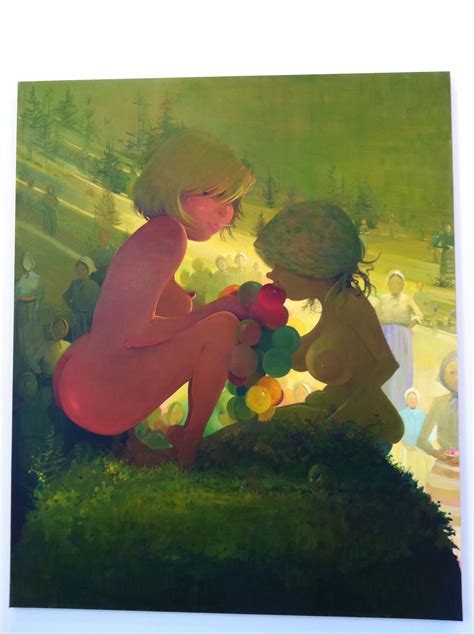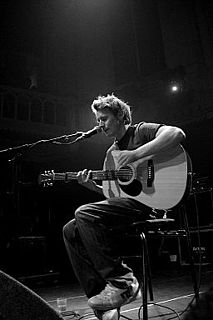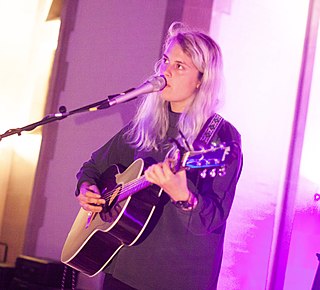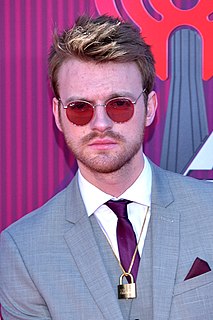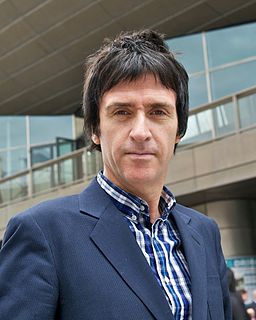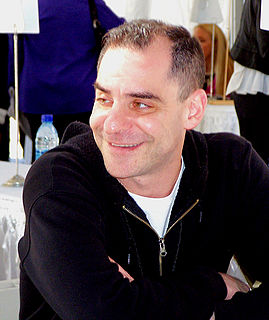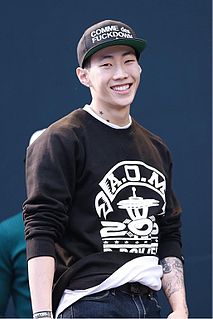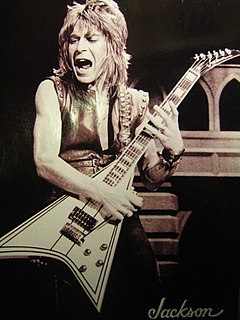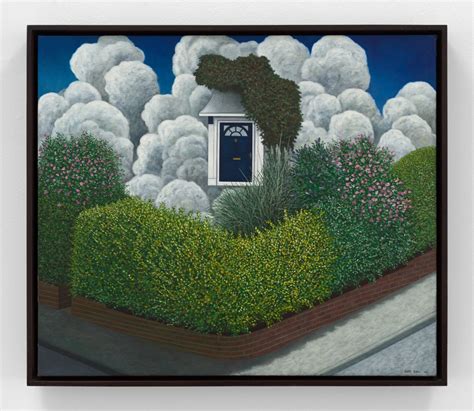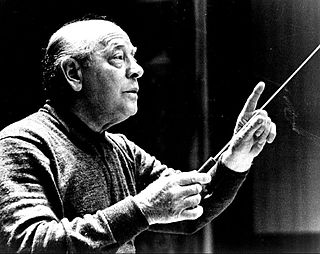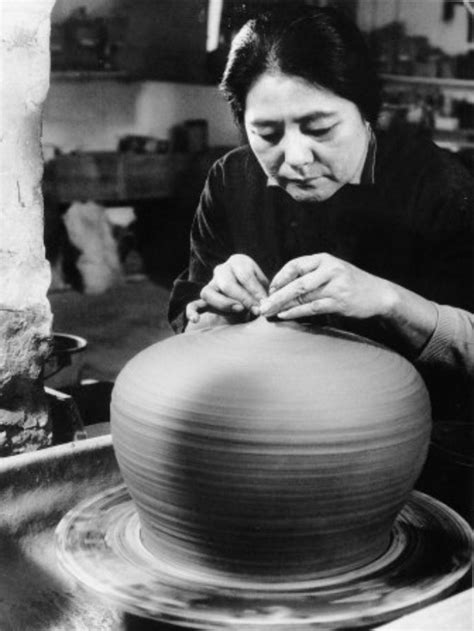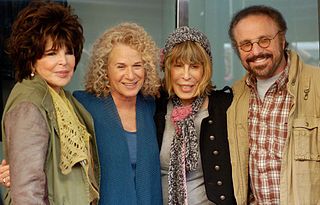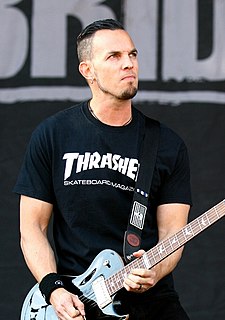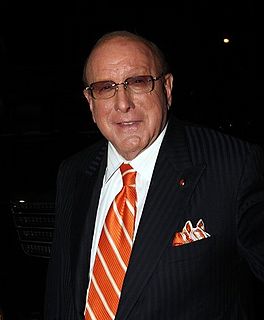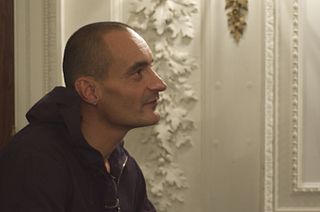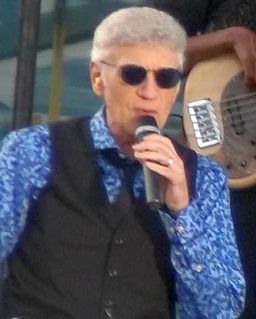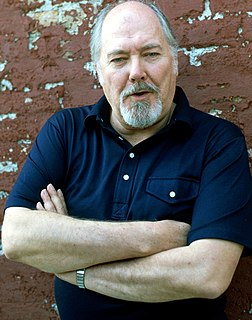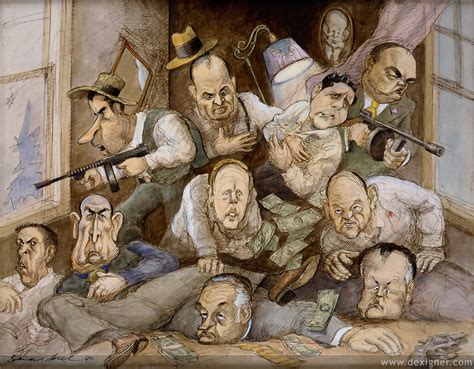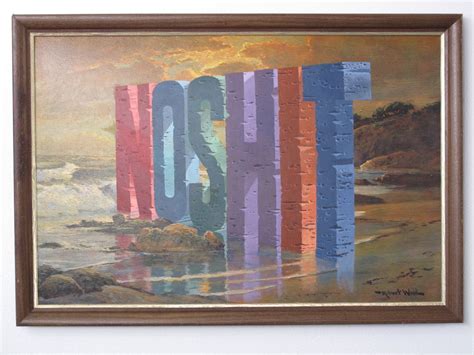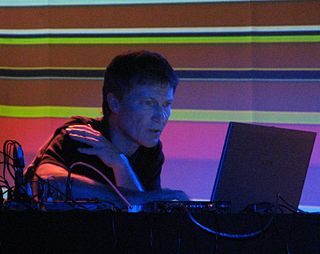Top 1200 Solo Artist Quotes & Sayings - Page 4
Explore popular Solo Artist quotes.
Last updated on November 30, 2024.
I was associated with the Artist Placement Group in the early 1970s and David Hall, the video artist, was an Artist Placement Group artist. I was completely broke at that time, and he said to me, "Come and do some teaching" - he was head of department at Maidstone College of Art. And I went and did a couple of teaching days and practically the only person who showed up was David Cunningham [Flying Lizard's main man], with all of this finished work
Introvert conversations are like jazz, where each player gets to solo for a nice stretch before the other player comes in and does his solo. And like jazz, once we get going, we can play all night. Extrovert conversations are more like tennis matches, where thoughts are batted back and forth, and players need to be ready to respond. Introverts get winded pretty quickly.
Just because you're a solo artist playing guitar, that doesn't make it folk. People get a bit confused about these things. There's so many more aspects to my music than that. Earlier on in my career, people tried to push me in that direction. They kind of wanted me to be a folky princess, which was just never gonna happen. I don't understand quite why it is, but it is very irritating that it's still happening.
When I taught art, I was always asked, 'How do you know you're an artist? What makes you an artist?' And to me, it's like breathing. You don't question if you breathe; you have to breathe. So if you wake up in the morning, and you have to realize an idea, and there's another idea, and another, maybe you are really an artist.
Unnur Birna is a Reykjavik-based violinist and singer. She has performed as a session musician with countless Icelandic and international artists while recording and appearing as a solo artist as well. Unnur has joined me as an unpaid guest on a few Icelandic shows in recent years, so it is a great pleasure to return the favour and appear on one of her songs at last. This new track, Sunshine, came about in Italy, written as an ode to sunlight and happiness after fleeing the dark winter in Iceland
(Talks about a school production) 'There was one solo; but it was a guy. It was this character called 'Freddy Fast Talk' and it was the bad guy. I didn't care, I was like I will dress up like a guy, I want to sing that song. And so I remembered we drew on eyebrows, and I had like a moustache,and we put all my hair up in this hat. So I dressed like a guy and sang the solo.
I haven't been walking around for years with some burning desire to do a solo record. If I had, maybe I'd have made a record that was experimental. Usually, the idea of a solo record is to get some weird stuff out of your system, but I don't think like that. I wasn't interested in making something that was a hard listen - maybe I'll get around to that some other time. I wanted it to sound effortless, not like I was trying to reinvent the wheel.
A secondhand wardrobe hand clothes doesn't make one an artist. Neither do a hair-trigger temper, melancholic nature, propensity for tears, hating your parents, or HIV. I hate to say it - none of these make one an artist. They can help, but just as being gay doesn't make one witty... the only thing that makes one an artist is making art.
I do feel like L.A. has a very supportive and collaborative energy. I felt that in New York too but also there's so much space here! You can have a home studio. In New York you had to rent a room to do a session or to practice. As a solo artist, it was a lot more expensive. Here there is that comfort in lifestyle a little bit more, being able to breathe a little bit more, and creatively flow, not having to stress about how to get our gear there in a cab and pay by the hour, it's just a different vibe.
There’s no “correct path” to becoming a real artist. You might think you’ll gain legitimacy by going to university, getting published, getting signed to a record label. But it’s all bullshit, and it’s all in your head. You’re an artist when you say you are. And you’re a good artist when you make somebody else experience or feel something deep or unexpected.
I'd have to say that "Mr. Crowley" in my most memorable solo... I had spent hours trying to figure out a solo for the song ... Ozzy came in and said "it's crap - everything you're playing is crap" .. he told me to get in there and just play how I felt. He made me really nervous, so I just played anything. When I came back to listen to it, he said it was great.
I don't really break into too many solos. But I've never been a super-big solo guy anyway. I like to make the main melody guitar lines of the songs as cool and interesting as possible without just strumming chords. I like to have chords intertwined with riffs here and there, but I'll do the riffs and the solos where the bottom will drop out. Basically, I do everything for the song, I don't do it for the solo glory. Kids aren't really into that anymore for some reason.
Being an artist doesn't just mean you have a song. That doesn't make you an artist. The word 'artist' means so many different things, and I feel like to be a real one, you really have to do it all. The people that I think of as artists - Tyler the Creator, Childish Gambino, Kanye West - are doing the most.
I was worried that I, the artist Morimura, would have conflicts with the participating artists and develop a strenuous relationship with them. But the actual experience was completely the opposite. The artists accepted my requests rather positively, because it came from a fellow artist. I strongly feel that the fact that my being an artist avoided the usual curator vs artist tension, and led to creating a positive atmosphere as well as developing a solidarity amongst artists and building a community for artists.
Now the expectation is that, once the public decides that the artist is gentrified, the public demands that the artist stop growing. And [the public] actually puts all their energy into reasserting or re-establishing what the artist has long ago left behind. Because that's what they want. The source of creativity, the gift that's been given, be damned.
There questions of wanting to be an artist, and what does that mean, what makes you an artist? Are you an artist if you're in a gallery in New York and not an artist if you're doing it at home? Do you need legitimation to count? If you've been acculturated to believe that you have certain obligations - familial, social, human - if multitasking has been your forte and that's what's been praised and rewarded, where do you find the single-mindedness, the selfishness to do something like art? I think those are questions that arise differently for women and for men.
I would almost say that in our solo activities there is an overarching line of thought that is Porter Ricks itself. Our solo work delivers the details. So occasionally we have to go back to our corners and study and research these details to be able to bring it back into the Porter Ricks project, and into the dialogue.
When we listen to improvisational jazz, or solo classical violinists, the way they phrase and inflect melodies feels vocal, like they’re talking to us. When I was figuring out how to perform solo, I wanted to move back and forth between bass riffs, melody, and harmony, so I often used sounds instead of — or alongside — the words of a song. I found that if I sang a line using the consonants, vowels, shadings, and inflection we recognize as human language sounds, people responded as if I were talking to them.
Exhibitions of minority art are often intended to make the minority itself more aware of its collective experience. Reinforcing the common memory of miseries and triumphs will, it is expected, strengthen the unity of the group and its determination to achieve a better future. But emphasizing shared experience as opposed to the artist's consciousness of self (which includes his personal and unshared experience of masterpieces) brings to the fore the tension in the individual artist between being an artist and being a minority artist.
I made 'Desert Moon' and when I made those solo albums, I was trying not to be Styx, because I thought, 'That belongs to us.' So, I made different kinds of solo albums that were not dipping my hand back into the magic Styx jar and pulling out all the tricks - because bands, they have tricks, don't they? That's what makes them different.
I would advise puppeteering for any artist. It's a way to break down pretensions. It's a sculpture that can talk. It's a painting that can talk. And it's pure play. I think every artist needs to stay in touch with the idea of playing. The artist should always be playing, always. All art is performance.
Before I joined Kraftwerk in 1971, I played guitar in a band called Spirits of Sound, whose members included (at times) amongst others singer Wolfgang Riechmann (Sky Records released his only solo album Wunderbar shortly after his death in 1978) and drummer Wolfgang Flür (later on Kraftwerk, now solo). The music of S.o.S. in the mid 60's first was the English pop and rock music of the times (Beatles, Kinks, Rolling Stones ).


